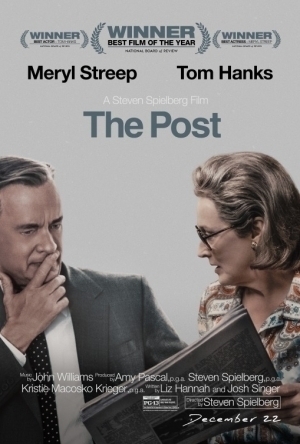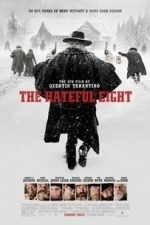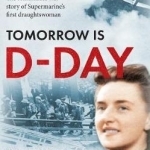
Tomorrow is D-Day: The Remarkable War Story of Supermarine's First Draughtswoman
Book
At 10.15 a.m. on Saturday 3 June 1944, a shaft of sunlight fell across my board, sending a brilliant...
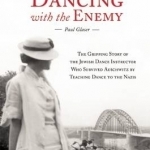
Dancing with the Enemy: The Gripping Story of the Jewish Dance Instructor Who Survived Auschwitz by Teaching Dance to the Nazis
Book
"An extraordinary story of an unconventional, nervy woman and her determination to survive." --The...
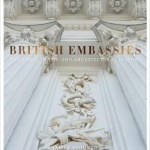
British Embassies: Their Diplomatic and Architectural History
Book
British Embassies have a special role in our history. They represent our country in bricks and stone...
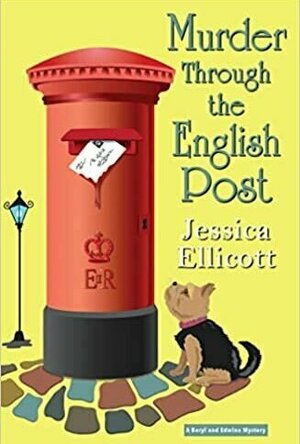
Murder Through the English Post
Book
When a rash of poisoned pen letters envelops their sleepy English village, Beryl and Edwina, the...
Gareth von Kallenbach (980 KP) rated The Post (2017) in Movies
Jul 11, 2019
When you hear the high caliber names such as Hanks, Streep, Speilberg, you can almost guarantee a top notch film with unbelievable emphasis on character development. They definitely did not disappoint! The Post works as a history lesson. Not only does it portray the events that took place with such thorough details, it exemplifies the relationship between not only a journalist and their source, but also the personal struggle between the editor, the owner of the newspaper, their friends who hold major positions within the government, and the moral obligation to at least get the truth out to the public.
The set design, the costume design, the characters’ mannerisms are flawless. Even the way social interaction was demonstrated between men and women. Women’s role is in the home, cooking, cleaning, and entertaining. Something so simple as the use of a rotary phone played such a nostalgic role. I can’t say enough about the wonderful acting skills of both Streep and Hanks. I suspect one or both with be receiving some serious accolades during awards season. Streep and Hanks both shine throughout the entire film. They both did a great job at relaying the emotions and the turmoil these characters faced.
Many lines throughout the movie–“if we don’t hold them accountable, than who will?”–ring true to a lot of the issues affecting us today.
Billie Wichkan (118 KP) rated The Curse: A Post-Apocalyptic Thriller in Books
Mar 15, 2019
Now a terrible curse hangs over the survivors, one that's pushing them towards a slow and painful extinction.
Unless...
A group of women, known as 'The Complex', have banded together to rebuild and survive in the heart of New York.
Despite the odds, these women aren't going down without a fight. Organized and resourceful, they've set out to rebuild the human race no matter what the cost.
But can it be done?
Can anyone defy the curse?
This was quite a surprise story. This was a story of post apocalyptic New York. We have some great characters and the description of life afterwards was very believable.
This is a great plot and different take on this subject. Lots of twists and surprises here and looking forward to reading more,
Awix (3310 KP) rated Battle: Los Angeles (2011) in Movies
Feb 22, 2018
Very much just a collection of other bits you've seen done better elsewhere, inasmuch they can be done better at all considering they're really not very impressive per se. Watching as a non-American, one is inevitably slightly put off by the uncritical wooh-yeah-hurray attitude towards members of the US armed forces, who are almost universally presented as flawless paragons of virtue, not to mention the post-9/11 subtext that sometimes it is morally justified to do Bad Stuff (torturing prisoners to death, that sort of thing) in the defence of America. Also quite boring.
Matthew Krueger (10051 KP) rated The Hateful Eight (2015) in Movies
Jul 25, 2019
The plot: While racing toward the town of Red Rock in post-Civil War Wyoming, bounty hunter John "The Hangman" Ruth (Kurt Russell) and his fugitive prisoner (Jennifer Jason Leigh) encounter another bounty hunter (Samuel L. Jackson) and a man who claims to be a sheriff. Hoping to find shelter from a blizzard, the group travels to a stagecoach stopover located on a mountain pass. Greeted there by four strangers, the eight travelers soon learn that they may not make it to their destination after all.
The hateful eight has a great cast and a great director.
I would highly reccordmend this movie.
There's No Place Like Home: The Migrant Child in World Cinema
Book
The Wizard of Oz brought many now-iconic tropes into popular culture: the yellow brick road, ruby...
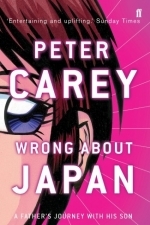
Wrong About Japan
Book
In a stunning memoir-cum-travelogue Peter Carey charts this journey, inspired by Charley's passion...
Japan Travel Culture Anime
